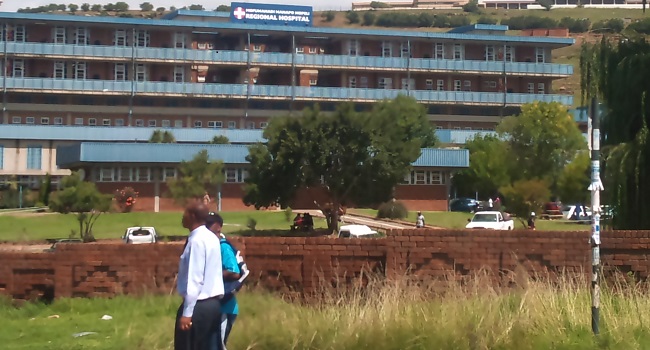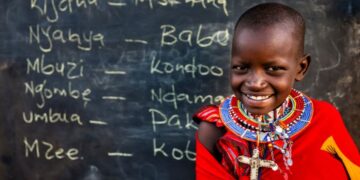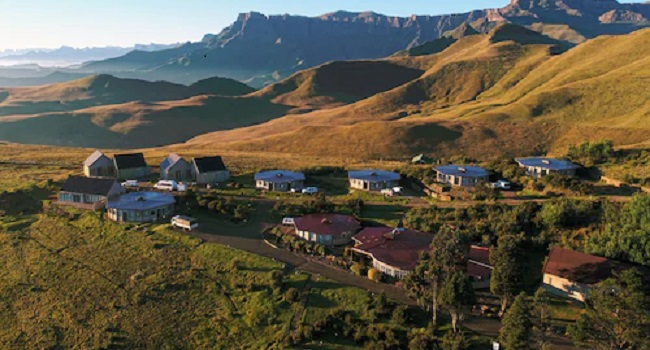Once upon a time, Phuthaditjhaba was called Witsieshoek by European settlers and Qwaqwa by the locals. The town was created in 1974 to serve as the capital of QwaQwa.
The origin of its present name ‘Phuthaditjhaba’ plays a significant role in the existence of the town. It came from a Sesotho word which means ‘meeting place of nations or tribes’. In the past, the town was occupied by the san, hunting and gathering tribe who reap from the richness of the land.
Geographically, the town is located in the Free State province of South Africa. It is bordered by the Drakensberg Mountains and Maluti Mountains. It also shares a border on the southeast and southwest with KwaZulu-Natal and Lesotho respectively.
The town has a couple of decent accommodations and many interesting attractions for tourists who wants to visit. Read through to know more about it.
Accommodation In Phuthaditjhaba
The historic town is not lagging behind in accommodations. There are many lodges, guest houses, hotels, and camping sites. You can make your choice from the major ones listed below:
-
Hakgosi Apartments (2,000 rands per night)
For 2,000 rands per night, you get to enjoy the following facilities and services; TV with satellite channels, free wi-fi, complimentary toiletries, electric blankets, gas heater, breakfast on request, and a secure parking area.
-
Sisonke Guesthouse (1,400 rands per night)
1,400 rands per night is enough to enjoy the following facilities and services; DStv, wall-mounted flat-screen TV, laundry services on request, beauty hair and dressing on request, fridge and microwave oven, luxury bathroom, coffee making facilities, hairdryers, braai facilities, and a secure parking area.
-
Basotho Cultural Village Rest camp (989 rands per night)
A visit to this rest camp will provide you with an amazing experience of rock formations, birds grassland, and beautiful scenery. You can also enjoy museum tours that provide a feel of the Basotho experience such as traditional cuisine, equipment, and weapons that were used in the past.
The cultural route takes you through the Basotho way of life that dates back from the 16th century to this very moment. While the herbal trail educates you about the medicines that were used in past and presently by traditional healers in Africa.
Rooms in the camp include; Rondawel HK2, Rondawel HKD4, and Rondawel HKDZ
Things To Do In Phuthaditjhaba
The town has much to offer people who are visiting for the first time. Some of the things you can do to enjoy your stay in town include;
-
Sight-seeing
Go for a sight-seeing at the famous Basotho Cultural Village where you will get to see the lifestyle and architecture of the town from the 16th century to date.
-
Hiking and Biking
There are two popular places you can go for a hike in Phuthaditjhaba. They are the Sentinel Peak Trail and Maluti Cave Hike.
Sentinel Peak Trail stands almost 3,000 meters above the ground. The hike can take a whole day but it can be reduced. While Maluti Cave Hike which starts from its base camp in Tseki, has duration options from 2, 3, and 4 days.
-
Picnics
While staying in the town, you won’t lack places for picnics. You can go to the Basotho cultural village or any of the hike trails within the town.
-
Shopping
You can go shopping provided you have the money. There is a couple of malls for your shopping pleasure. Some of them are Bradlows Setting Shopping Center, Qwaqwa shopping mall, Setsing Crescent Shopping Center, Maluti Crescent, Setsing IV Center, and Setsing plaza among others.
Also See-12 Amazing Things You Were Never Told About God’s Window
5 Facts About Phuthaditjhaba

1. There Are More Women In The Town.
Based on figures from the 2011 census, the town has a population of less than 60, 000 people. Out of this number, females account for 55%, while the males for 45% of the population respectively.
2. Why It Was Called Qwa-Qwa In The Past
It was the San people that named the town Qwa-Qwa. This is because of the snow on the Drakensberg mountain peaks that always surrounds the town. Qwa-Qwa means whiter than white.
3. Why The Europeans Settlers Called It Witsieshoek
The town got its former name Qwa-Qwa from the locals due to snow, the European settlers named it after a Makholokoe chief. His name was Oetse, also known as Wetsie and Wetsi. He lived there from 1839 to 1856.
4. The Town Was Granted Self-Government In 1974
In 1974, the town was given a free hand to rule itself. That marked the creation of Phathuditjhaba as the capital of Qwa-Qwa.
5. It Became Part Of The Free State Province After Abolishment Of Apartheid
Following the 1994 abolishment of apartheid in South Africa, the town became part of the Free State province.





















Discussion about this post